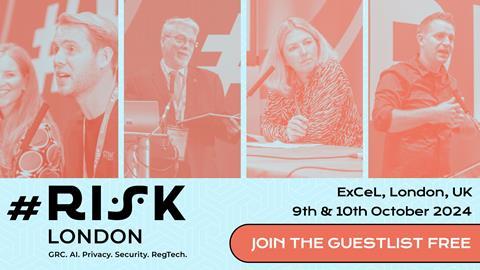In a world increasingly driven by artificial intelligence, the latest discussions in the cybersecurity industry have underscored the critical need for robust governance frameworks.

Industry leaders are tackling pressing issues in AI and data governance, reflecting the rapid technological advancements and emerging threats that businesses must navigate today.
Data Governance: A Cornerstone of Cybersecurity
Data governance has emerged as a dominant theme, marking a shift from previous focuses on Zero Trust principles to more comprehensive data management strategies. Organisations are now prioritising data availability, its usability, integrity, and security as regulatory and organisational standards intensify on a global level.
Key technologies being discussed include Data Security Posture Management (DSPM) and Data Detection and Response (DDR). These tools enable organisations to proactively manage and protect their data, addressing critical questions such as:
- Where is data being kept?
- Who has access to it?
- What are the risks associated with personal information?
- What security protocols should be implemented?
- How has the data security posture changed?
These questions are essential for maintaining robust data governance frameworks, ensuring that organisations can protect their information against breaches and comply with evolving legal requirements.
Addressing AI Risks and Opportunities
Business chiefs must understand the dual nature of AI as both a risk and an opportunity. The rise of synthetic media – deepfakes, audiofakes, fraudio, etc. – poses significant social engineering threats. To combat these risks, cybersecurity vendors, governments, and social media platforms must collaborate closely.
Firms are increasingly looking at tools that centralise the management of employee access to AI applications, inspect prompts to prevent data leaks, ensure compliance, and defend against AI-specific attacks. This proactive approach to AI governance is crucial as generative AI becomes more integrated into business operations.
Proactive Security Posture Management
Security Posture Management (SPM) has emerged as a critical strategy for organisations looking to enhance their cybersecurity defences. It’s a measure that places greater focus on accurate asset inventory and continuous risk assessment – a holistic approach that allows organisations to address the most critical security threats more effectively.
One significant development in this area is the integration of generative AI-driven remediation guidance within SPM tools. These tools not only identify risks but also provide actionable solutions, streamlining the remediation process.
The Future of Cybersecurity Governance
As AI continues to evolve, businesses must adopt comprehensive data governance frameworks, leverage advanced security posture management tools, and stay ahead of emerging threats through collaborative efforts.
#RISK London 2024
We’re excited to share that #RISK is back in London for its third consecutive year, ready to equip attendees like you with the knowledge, insights, and connections crucial for navigating today’s dynamic risk landscape.
Key #RISK London sessions include:
The Future of Privacy: Emerging Technologies and Data Governance
Location: PrivSec Theatre
This session will explore the impact of emerging technologies like blockchain, quantum computing, and the Internet of Things (IoT) on data privacy. Experts will discuss the need for innovative data governance models to address the challenges and opportunities presented by these technologies.
The Future of GRC Technology: Trends and Innovation
Location: GRC Theatre
This session will showcase cutting-edge technologies transforming the GRC landscape, such as blockchain for secure data management, machine learning for advanced risk analytics, and automation tools for streamlining GRC processes.
Experts will discuss the potential of these technologies to improve GRC efficiency and effectiveness, while also addressing potential challenges like data security and integration with existing systems.
These are just two of the exclusive sessions taking place at #RISK London this October
Click here to see the full agenda
Discover more at #RISK London
Taking place October 9 and 10 at London’s ExCel, #RISK London brings high-profile subject-matter experts together for a series of keynotes, engaging panel debates and presentations across four separate theatres:
• GRC Theatre
• RegTech Theatre
• PrivSec Theatre
• Risk Theatre
Each theatre is dedicated to examining the challenges and opportunities that businesses face in times of unprecedented change.
By breaking down silos and aligning systems and workflows, organisations can streamline decision-making, improve efficiencies, and enhance the customer experience.
Attendees will be able to learn how to mitigate risks, reduce compliance breaches, and drive performance.
“#RISK is such an important event as it looks at the broad perspective. Risks are now more interconnected and the risk environment is bigger than ever before.”Michael Rasmussen, GRC Analyst & Pundit, GRC 20/20 Research
Click here to register for #RISK London today!























No comments yet